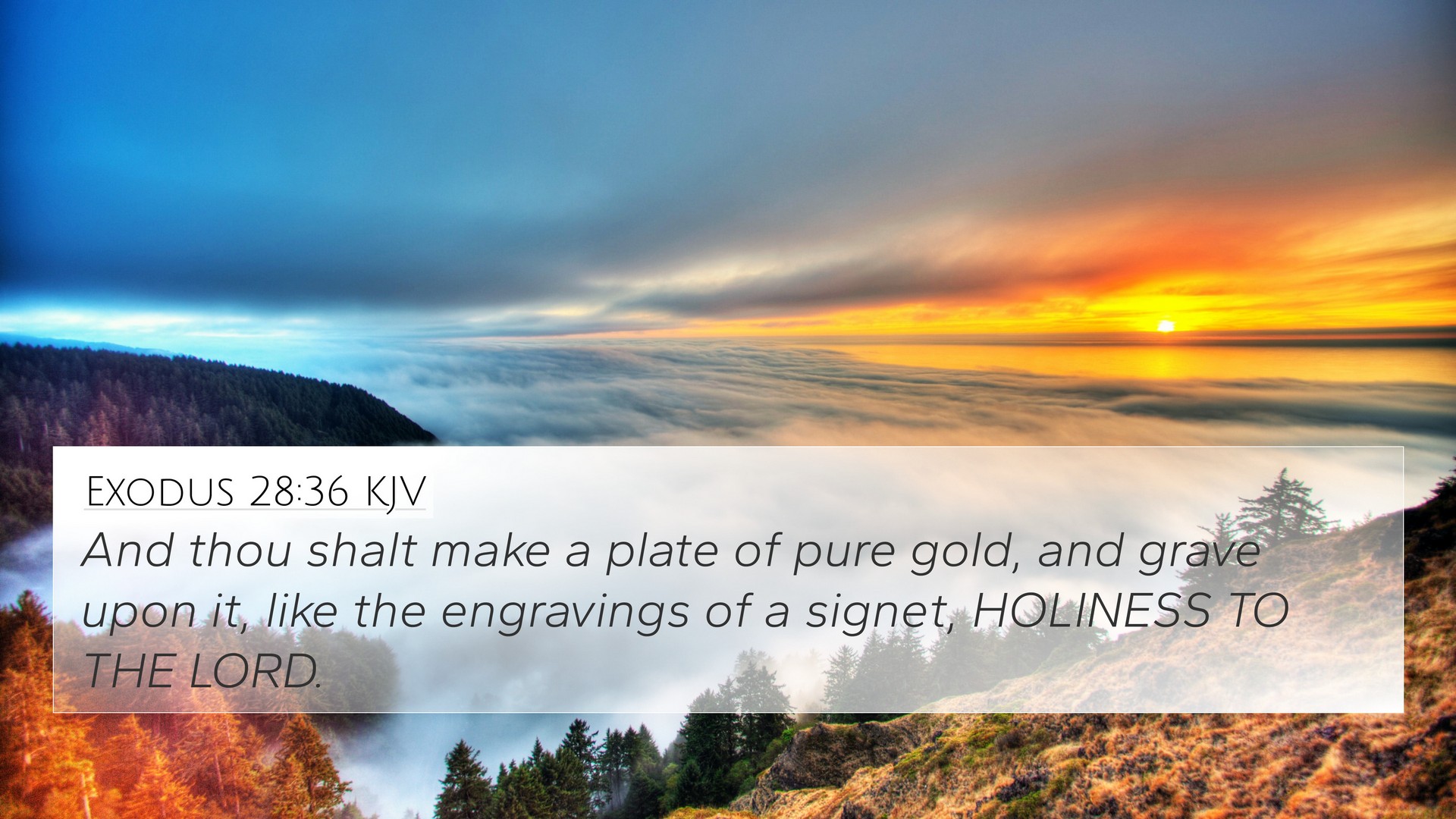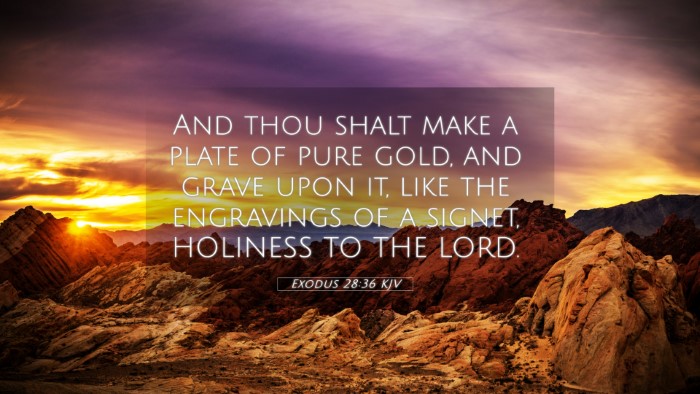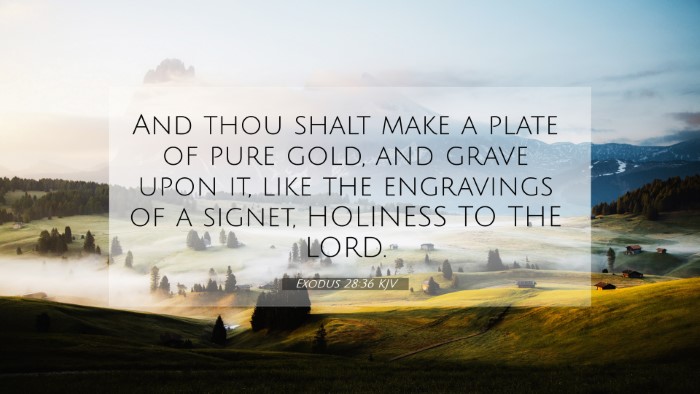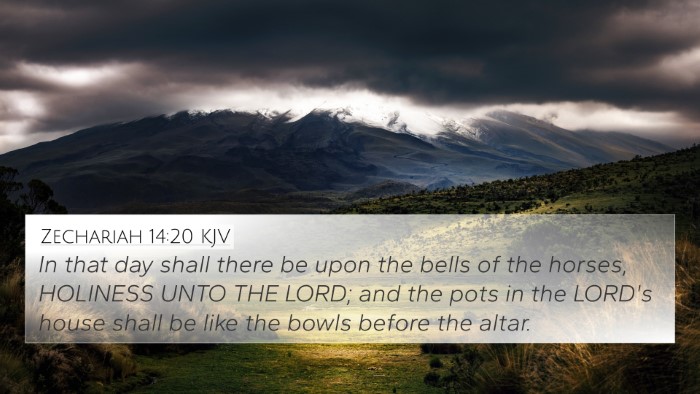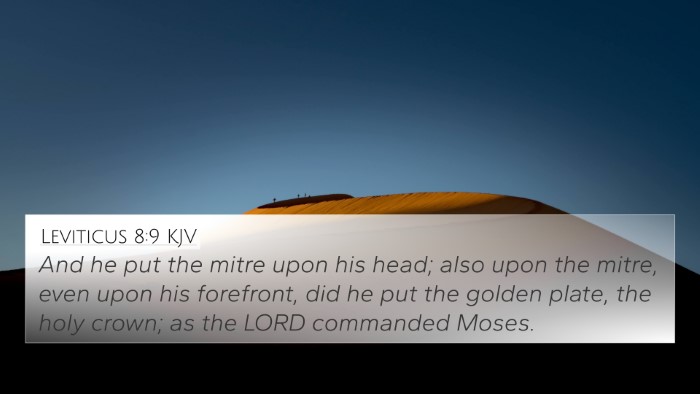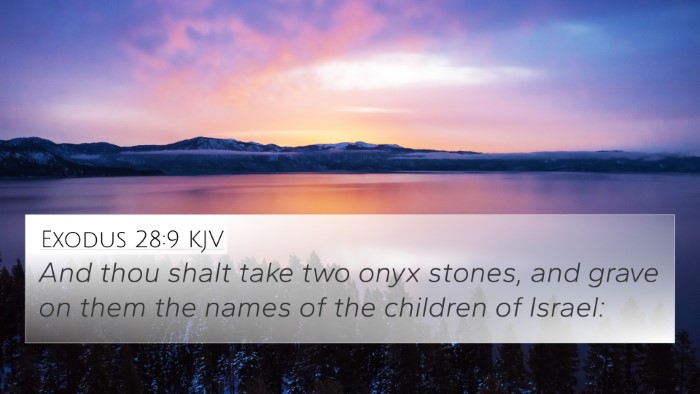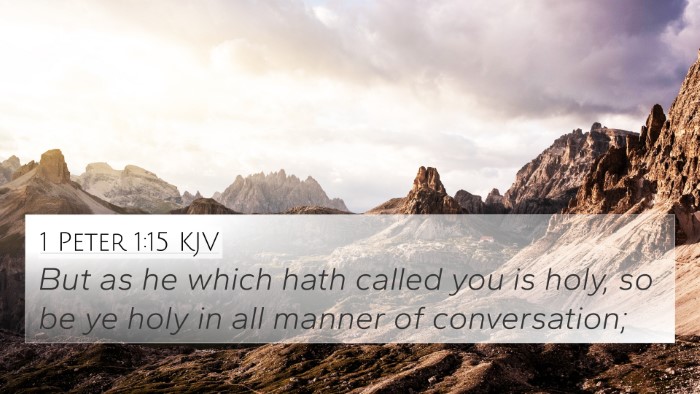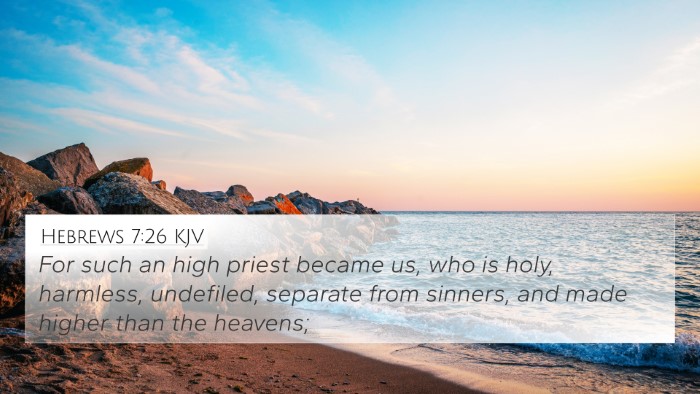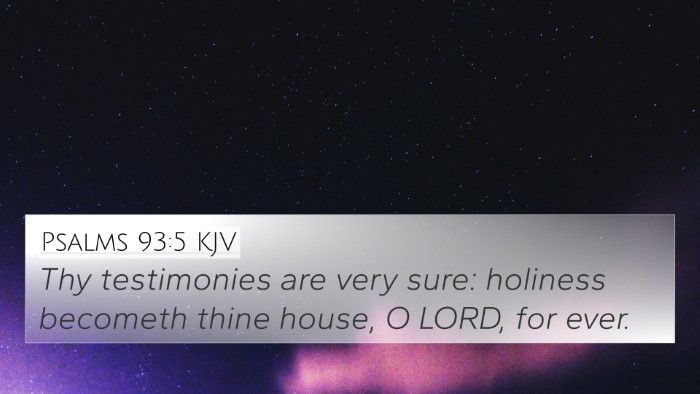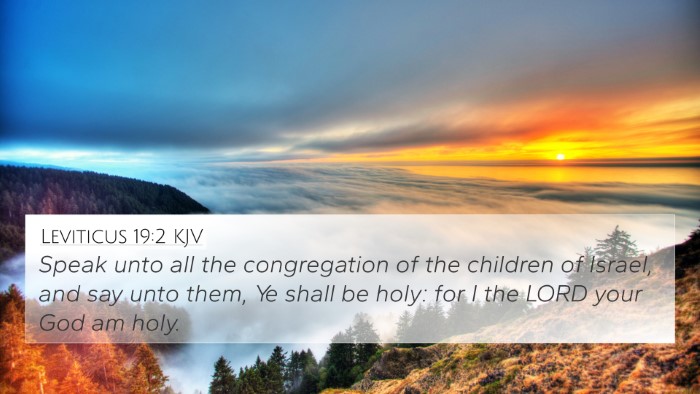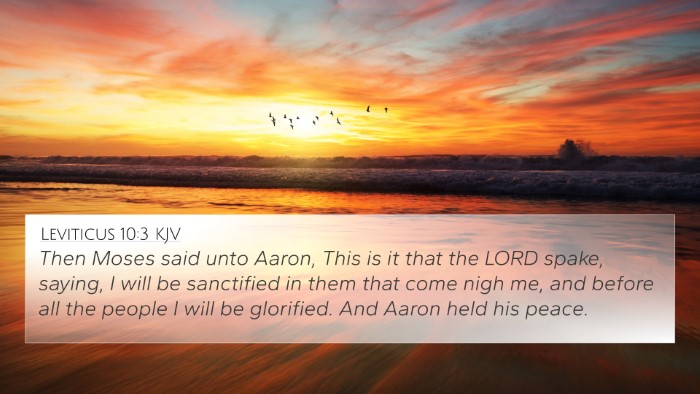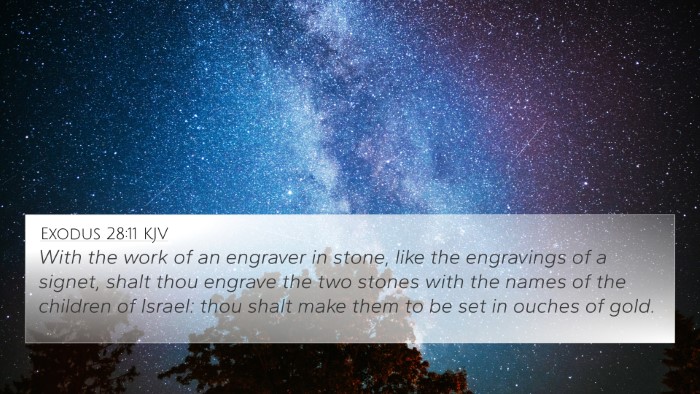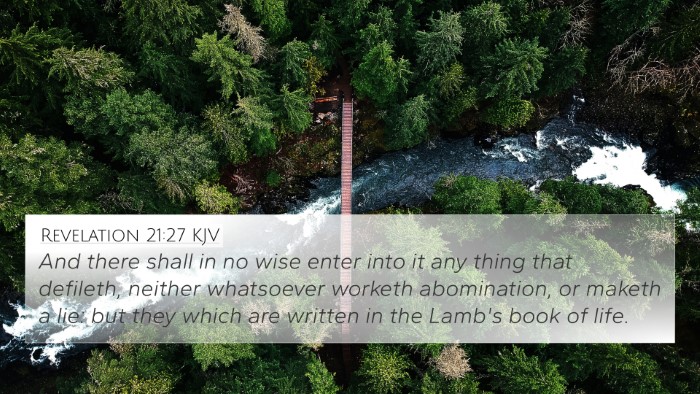Exodus 28:36 - Verse Overview
Exodus 28:36 states, "And you shall make a plate of pure gold and engrave on it, like the engraving of a signet, 'Holiness to the Lord'." This verse pertains to the instructions given to Moses regarding the garments of the High Priest, specifically the diadem that is worn on the forehead. This piece was intended to signify the holiness required in the service of God.
Meaning and Significance
This passage emphasizes the importance of holiness in approaching God, encapsulated by the phrase "Holiness to the Lord." It sets a standard for the character of worship and dedication that the High Priest must embody, serving as a mediator between God and the people of Israel.
Commentary Insights
-
Matthew Henry:
Henry elaborates on the significance of the High Priest's attire, highlighting that the plate is a reminder to the priest of his sacred duty to be consecrated and set apart for God's service. The engraving denotes the ultimate goal of purity and dedication required within this role.
-
Albert Barnes:
Barnes indicates that the gold plate serves not only as a decoration but as a constant emblem of the priest's obligation to lead the people in holiness. It reinforces the idea that every aspect of the priest's appearance is to reflect God's holiness, which they must emulate in their conduct.
-
Adam Clarke:
Clarke provides a detailed analysis of the materials and workmanship required for this diadem, emphasizing its pure gold construction, which symbolizes divinity and the ultimate value of holiness in God’s presence. The phrase "Holiness to the Lord" acts as both a declaration and a call to purity.
Bible Cross-References
- Leviticus 10:3: “Then Moses said to Aaron, 'This is what the Lord spoke, saying: By those who come near Me I must be regarded as holy.'”
- 1 Peter 1:16: “Because it is written, ‘Be holy, for I am holy.’”
- Hebrews 7:26: “For such a High Priest was fitting for us, who is holy, harmless, undefiled, separate from sinners…”
- Exodus 30:30: “You shall anoint Aaron and his sons, and consecrate them, that they may minister to Me as priests.”
- Isaiah 62:12: “And they shall call them The Holy People, The Redeemed of the LORD; And you shall be called Sought Out, A City Not Forsaken.”
- Psalms 93:5: “Your testimonies are very sure; Holiness adorns Your house, O Lord, forever.”
- Revelation 4:8: “Holy, holy, holy, Lord God Almighty, Who was and is and is to come!”
- 2 Corinthians 6:17: “Come out from among them and be separate, says the Lord. Do not touch what is unclean, and I will receive you.”
- Matthew 5:48: “Therefore you shall be perfect, just as your Father in heaven is perfect.”
- Ephesians 1:4: “Just as He chose us in Him before the foundation of the world, that we should be holy and without blame before Him in love.”
Thematic Bible Verse Connections
The theme of holiness pervades the Scriptures, illustrating God's call to His people to embody His character. Exodus 28:36 stands as a pivotal scriptural reference that prepares the foundation for understanding the priestly role not only in the Old Testament but also in the New Testament context of Christ as our High Priest.
Cross-Referencing Biblical Texts
Connecting Exodus 28:36 with other verses promotes a deeper understanding of God's requirement for holiness across both testaments. Through this verse and its cross-references, readers can explore the continuity of the theme of holiness from the Old Testament sacrificial system to the New Testament realization in Jesus Christ.
Conclusion
Exodus 28:36 serves as essential text for any study of holiness, priesthood, and God's covenant with His people. By exploring the cross-references mentioned, readers can gain insights into God's overarching narrative of redemption and holiness, which remains relevant to contemporary believers.
Tools for Bible Cross-Referencing
Utilizing tools such as a Bible concordance or cross-reference Bible study methodologies can significantly enhance the understanding of scripture passages like Exodus 28:36. These resources aid in identifying thematic connections across different books of the Bible, enriching both personal and communal study experiences.
